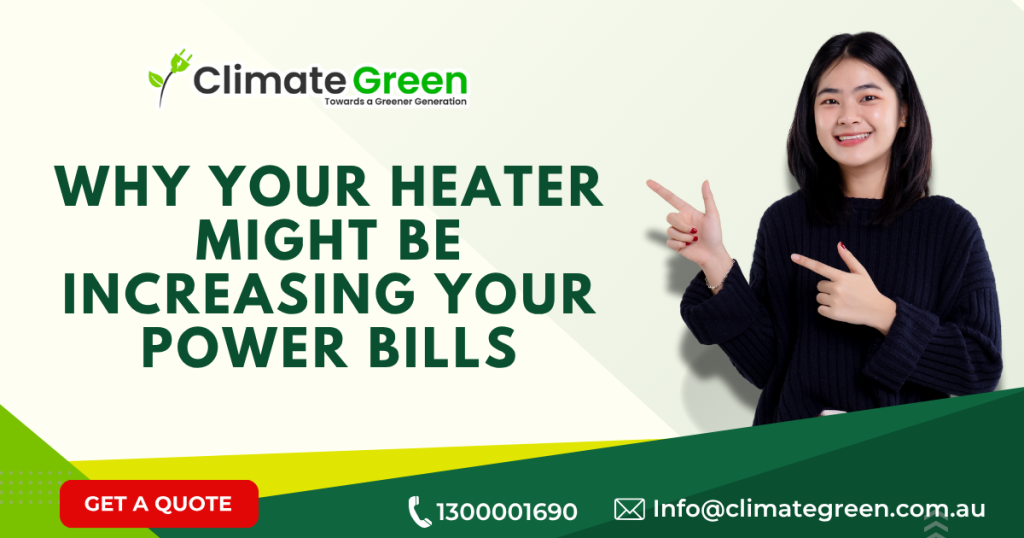Why Your Heater Might Be Increasing Your Power Bills
Is Your Heater Costing You More Than It Should?
If rising heating bills each winter are putting a strain on your budget, you’re not alone. Choosing the right heating system—and using it efficiently—can make a huge difference to your energy costs. So, how can you tell if your current heater is draining your wallet unnecessarily? Let’s break it down and explore the most cost-effective heating solutions available, along with smart energy-saving tips.
Comparing Heater Running Costs in Victoria
Understanding the cost of different heating systems is key to making informed choices. Here’s a quick comparison:
| Heater Type | Average Running Cost per Hour |
|---|---|
| Electric Heater (2,000W) | |
| Gas Heater (Standard) | ~$0.45 – $0.70 per hour |
| Gas Ducted Heating | ~$1.50 – $3.00 per hour |
| Split System (Reverse-Cycle) | ~$0.20 – $0.50 per hour |
As seen above, reverse-cycle split system air conditioners are among the most affordable options to run. For comparison, running a 2,000W electric heater continuously for 24 hours can cost around $14.40 per day, proving why outdated electric heaters aren’t budget-friendly.
Gas Ducted Heating vs Reverse Cycle Air Conditioning
Many Victorian households still rely on gas ducted heating, but it’s significantly more expensive to operate:
- Gas Ducted Heating: Costs around $1.50 – $3.00 per hour. In larger homes, this can quickly escalate your bills.
- Reverse Cycle Split Systems: Cost just $0.20 – $0.50 per hour, making them far more economical. They also double as cooling systems during summer, offering year-round comfort and value.
Clearly, reverse cycle air conditioning is the smarter, cost-effective choice for Melbourne, Bendigo, Ballarat, Moe, Kew, and nearby suburbs.
Smart Heating Tips to Reduce Energy Costs
Your bills don’t just depend on your heating system—they also depend on how you use it. Here’s how to save more:
- Set Your Thermostat Wisely: Keep it between 18°C–20°C in winter for the best balance of comfort and efficiency.
- Heat Only What You Need: Use zoning features or focus on heating main living spaces rather than the entire house.
- Use Timers and Scheduling: It’s more efficient to program your heating to turn on shortly before you wake up or get home.
- Maintain Your System: Regular servicing ensures your heater or air conditioner runs efficiently and safely.
- Improve Insulation: Seal drafts, use curtains, and insulate ceilings to retain heat and reduce runtime.
Why Reverse Cycle Air Conditioners & Heat Pumps Are the Best Choice
Reverse cycle systems, paired with heat pumps and solar batteries, offer unbeatable efficiency:
Lower Running Costs: Use less energy compared to gas or electric heaters.
Year-Round Comfort: Heating in winter and cooling in summer from one system.
High Energy Efficiency: Deliver more heat output per kWh of electricity consumed.
Solar Compatible: When connected to solar panels and batteries, heating costs can drop close to zero.
Installing an energy-efficient reverse cycle system or heat pump with Climate Green Melbourne is an investment that pays for itself in reduced bills and improved comfort.
Servicing Melbourne, Bendigo, Ballarat, Moe, Kew & Nearby Suburbs
At Climate Green Melbourne, we are an accredited provider and expert installer of:
- Reverse Cycle Air Conditioning
- Heat Pump Hot Water Systems
- Solar Panels & Battery Storage
Our team provides end-to-end support—from consultation and rebate processing under the Victorian Energy Upgrades (VEU) Program, to expert installation in Melbourne and surrounding hubs like Bendigo, Ballarat, Moe, and Kew.
Frequently Asked Questions (FAQs)
Q: Can I run a reverse cycle air conditioner on solar power?
Yes! With enough solar panels (and optionally a battery), you can effectively run your air conditioning with minimal grid costs.
Q: How many solar panels do I need to run a split system?
A small split system may need around 6 panels, while a larger ducted unit could require 20 or more.
Q: Does heating at higher temperatures cost more?
Absolutely. The higher you set your thermostat, the more energy your system uses. Keeping it at 18°C–20°C is ideal.
Q: Should I leave my heater on low all day?
No. It’s more cost-effective to use timers or smart thermostats to heat your home only when needed.
Q: Are reverse cycle air conditioners the cheapest heating option?
Yes. They are the most efficient, especially when combined with solar panels and battery storage.
Final Thoughts
Switching to reverse cycle air conditioning and heat pumps, especially when paired with solar and battery systems, is the smartest way to keep your home comfortable while slashing your energy costs.
Climate Green Melbourne is here to help you make the change—offering expert installation, accredited services, and full rebate support for homes across Melbourne, Bendigo, Ballarat, Moe, Kew, and nearby areas.
Call us today: 1300 001 690
Email: info@climategreen.com.au
www.climategreen.com.au


